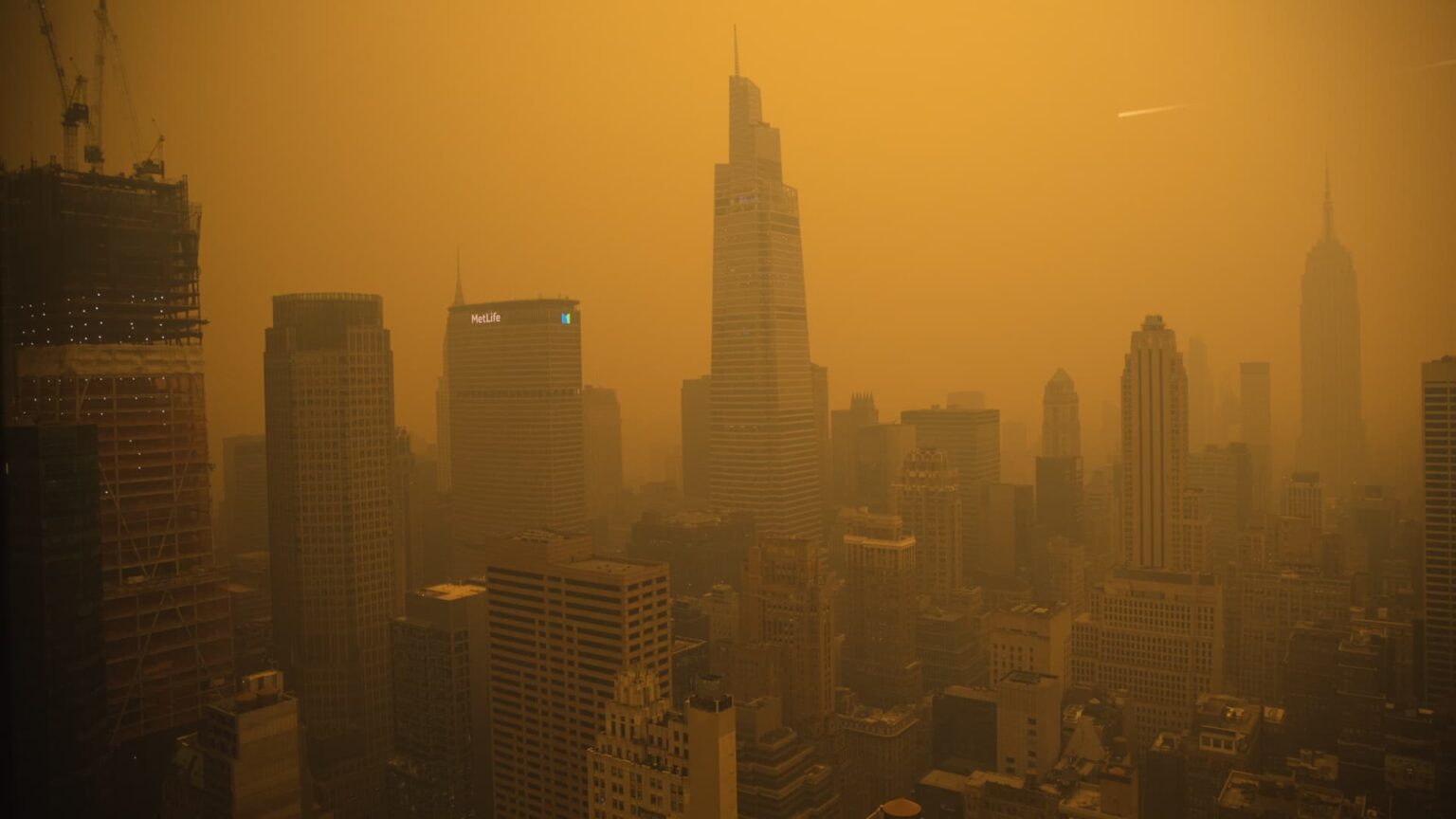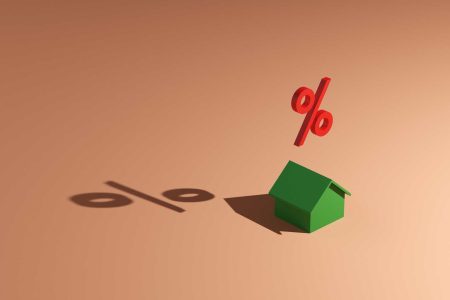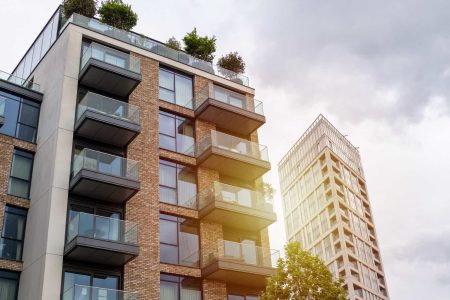Americans in several parts of eastern U.S. looked up at the sky this afternoon to see the same alarming haze that first appeared Tuesday night. There were more than 400 wildfires burning in Canada on Tuesday, according to the Canadian Interagency Forest Fire Centre, causing unhealthy smoke conditions from New York to Michigan.
As of Wednesday June 7, New York City was the city with the worst air quality on Earth, according to IQAir.
“If exposed to the current air quality in NYC for 24 hours, it would be equivalent to smoking about 6 cigarettes,” Colin McCarthy, an atmospheric science student who provides extreme weather updates, shared on Twitter.
For New York residents, an air quality advisory was shared in multiple regions. It indicates that fine particles in the air have reached an unhealthy level, especially for sensitive groups.
“This is not going to go on for months. It’s going to pass. This is not going to last. This is not a pandemic,” says Dr. Adrian Pristas, a pulmonologist at the Hackensack Meridian Bayshore Medical Center.
“This is going to go on for days, maybe a week. I wish I knew that for sure, but it all depends on what happens in Canada so people should pay attention to that.”
Everything you need to know about air conditions, given the Canada wildfires
Will the smoky air affect your health?
“Secondhand smoke from any fire carries with it some risks,” says Pristas, with the greatest risk being for vulnerable populations.
Some symptoms that people may experience from secondhand smoke exposure, according to Pristas, are:
- Difficulty breathing
- Scratchy throat
- Irritated eyes
- Fast heart rate
Exposure to particulate pollution can also raise your risk of developing “asthma, lung cancer and other chronic lung diseases,” especially for people with certain conditions, according to NBC News.
Should you wear a mask outdoors?
The best move is to stay indoors. “Be smart about why you’re outside. Don’t underestimate the importance of what this can do to your lungs. Any exposure can be a significant and serious one,” says Pristas.
“An N95 mask could be of some help, but I wouldn’t count on that being the absolute solution to the problem,” he adds.
If you have to go outside and you’re more at risk, “a mask is going to be an option to help. Anything is better than nothing,” he says. And an N95 mask would offer the most protection, Pristas says.
Who’s most at risk?
Certain groups who are more at risk to severe outcomes, include:
- Anyone with heart and lung disease, including heart failure or high blood pressure
- People with asthma
- Pregnant people
- Young children
- Older individuals
“All of the particulate matter and smoke is going to be around awhile, and there’s not a lot we’re going to be able to do about it, but just protect ourselves,” Pristas says.
‘Don’t go outside unless you really have to’
Thankfully, there are choices you can make to stay safer, says Pristas. Here are some recommendations that he has for those living in affected areas:
- Stay indoors: “Don’t go outside unless you really have to.”
- Don’t fry food, or smoke, to avoid polluting the air in your home.
- Use an air filter or purifier.
- Pay attention to weather reports in your area.
- Avoid outdoor physical activity: “When you’re exercising, you’re breathing harder, breathing faster. It’s more of an opportunity to bring these pollutants into your lungs.”
- Contact your doctor if you’re feeling sick.
- Consider over-the-counter medications and cough drops for scratchy throat and other symptoms.
‘It’s not practical to travel to work’
As much as you can, avoid outdoor tasks that can be put off for a few days, like putting gas in your car or grocery shopping, Pristas says. If you can work from home, he strongly recommends doing so.
“This is no different than other circumstances like a snow day, with two feet of snow out there. It’s not practical to travel to work,” he says.
“Maybe you have to take a day off. Hopefully we learned some things from what happened [in] the last few years and understand that we can survive at home for awhile without going outdoors.”
DON’T MISS: Want to be smarter and more successful with your money, work & life? Sign up for our new newsletter!
Get CNBC’s free report, 11 Ways to Tell if We’re in a Recession, where Kelly Evans reviews the top indicators that a recession is coming or has already begun.
Read the full article here













